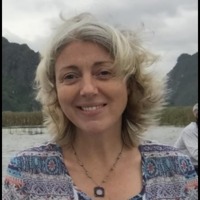Background: Post-positivist critics of the linear-rational understanding of the role of knowledge in decision making have long argued the need for the construction of socially robust knowledge to illuminate policy problems from a variety... more
Background: Post-positivist critics of the linear-rational understanding of the role of knowledge in decision making have long argued the need for the construction of socially robust knowledge to illuminate policy problems from a variety of perspectives, including lived experiences. Aims and objectives: This article charts the attempts of researchers to employ a creative method, digital storytelling, alongside more traditional scientific data in stakeholder deliberations to inform local food governance in South Africa. Methods: Four storytellers from a marginalised group created and introduced their digital story about a 'time when they had to make a difficult choice about what food to purchase or get' to a public governance forum and the reactions of the audience self-reported. Findings: The digital stories were emotionally compelling and gave granular detail to the more top-down perspective of the scientific data. There were concerns, however, for the welfare of the storytellers when introducing their stories in the forum. Discussion and conclusion: Our findings highlight the multi-functionality of digital storytelling as a method of creativity within the process of co-production, not just as a technique to make visible knowledge from marginalised groups, but also as a mechanism (when used and viewed in a wider governance context) to promote knowledge mobilisation and alternative ways of knowing. The use of digital storytelling in these wider governance contexts, or social learning spaces, however, also surfaces ethical and other risks. Key words digital storytelling • co-production of knowledge • creativity • knowledge democracy Key messages • Digital storytelling is a creative method that can make the knowledge of marginalised groups more visible.
Research Interests:
Research Interests:
Research Interests:
Research Interests:
Research Interests:
Research Interests:
Research Interests:
Research Interests:
Research Interests:
Research Interests:
Research Interests:
Research Interests:
Obtaining consent for HIV research is complex, particularly in low-and middle-income countries. Low levels of education, complexity of science and research processes, confusion about basic elements of research, and socioeconomic... more
Obtaining consent for HIV research is complex, particularly in low-and middle-income countries. Low levels of education, complexity of science and research processes, confusion about basic elements of research, and socioeconomic conditions that make access to medical care difficult have collectively led to concerns about the adequacy of the consent process. Given the exponential growth of HIV prevention and treatment research in South Africa, HIV researchers are increasingly facing challenges obtaining authentic informed consent from potential participants. It is anticipated that HIV cure research, despite being in its infancy in South Africa, will introduce a new discourse into a population that is often struggling to understand the differences between 'cure', 'preventive and therapeutic vaccines' and other elements of the research process. Coupled with this, South Africa has a complex history of 'illegitimate' or 'false cures' for HIV. It is therefore logical to anticipate that HIV cure research may face significant challenges during consent processes. HIV prevention research in South Africa has demonstrated the importance of early community engagement in educating potential research participants and promoting community acceptance of research. Consequently, in an attempt to extrapolate from this experience of engaging with communities early regarding cure research, a 15-minute educational video entitled 'I have a dream: a world without HIV' was developed to educate and ultimately empower potential research participants to make informed choices during consent processes in future HIV cure clinical trials. To aid others in the development of educational interventions, this paper discusses the challenges faced in developing this educational video.
Research Interests:
Knowledge about what builds and what blocks pathways to accountability in South African townships could be strengthened by better understanding the role of intersectionality in these settings. This article describes our use of a novel... more
Knowledge about what builds and what blocks pathways to accountability in South African townships could be strengthened by better understanding the role of intersectionality in these settings. This article describes our use of a novel hand mapping method to explore identity and inequality among a collective of community members from the township of Delft in Cape Town. We share new insights about the effect of intersecting inequalities on the capacity of activists and concerned young citizens to take part in building accountability for safer spaces in South Africa. Although we gained a deeper understanding about some of the ways that intersecting inequalities play out in the lives of Delft residents, we also learnt lessons about the limits to facilitated accountability struggles. Some of these struggles relate directly to the inequalities that this study has highlighted, and some reflect the highly fluid socioeconomic and political environment in which our work was situated. This article is divided into eight main sections. We begin by introducing the theory of intersectionality and provide a rationale for using participatory visual methods as tools for intersectionality research. We then summarize the study context and describe the hand mapping method that was used. The following four sections present our results through discussions of identity and personal experiences of inequality, unpacking intersecting inequalities, the possibilities and constraints of advancing accountability, and balancing accountability with the conditions
